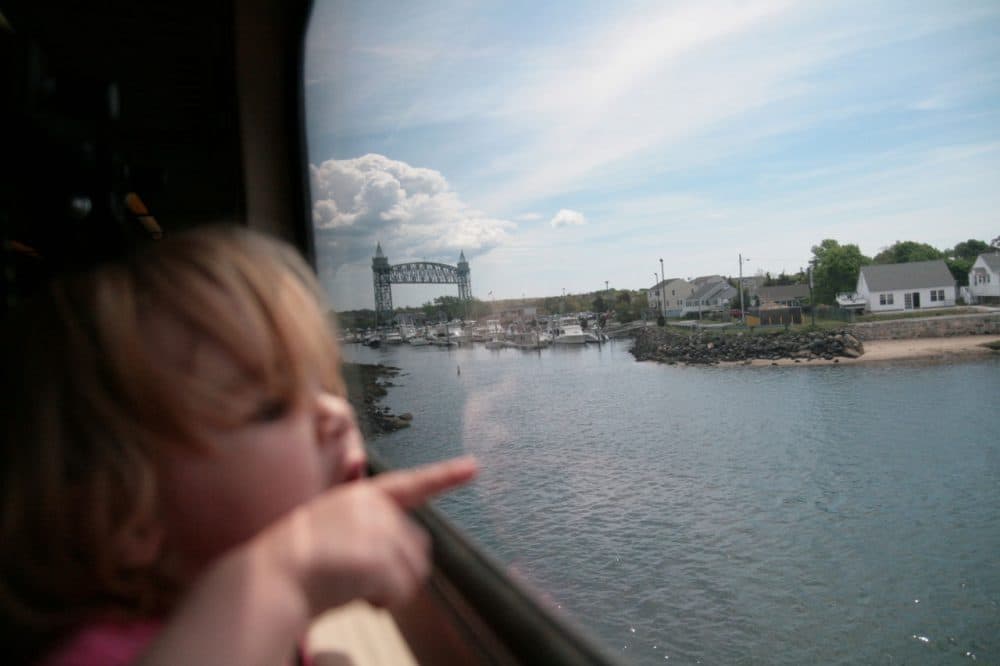Advertisement
Boston-To-Cape Train Returns Friday With Additional Service

The CapeFLYER train service returns for its third year Friday with round-trip weekend rides from Boston to Cape Cod through Labor Day.
This summer's CapeFLYER service will include two new features — its own dedicated Friday night train from South Station to the Cape and an additional stop in Brockton.
"We thought originally that the commuters would be interested in our cafe car and other things that we provide on the CapeFLYER , but most of those commuters were just wanting to get home on Fridays," said Tom Cahir, the administrator of the Cape Cod Regional Transit Authority. "So, this dedicated train is going to be exciting."
In previous years, the Friday night train, which left South Station at 5:12 p.m., was part of the MBTA commuter rail service, so passengers going to the Cape had to make eight stops on the way to Middleborough. This year, a train just for Cape riders will leave South Station at 5:50 p.m. on Fridays and bypass most of those stops, shaving off a little bit of trip time.
The weekend-only CapeFLYER will also include a stop in Brockton for the first time, opening up the service to more potential riders.
"Brockton has 100,000 folks that live in that jurisdiction and [are] in close proximity to the train station and with easy access from major highways, so we thought it’s far enough away from Cape Cod that people might want to take the train," Cahir said.
Last year, ridership was 12,625, according to the Cape Cod RTA. In 2013, the first year the service operated, ridership was 15,786. In that first year, though, service was extended by six weeks, through Columbus Day weekend, "which sort of skewed the ridership," Cahir said. The service was not extended last summer because there were fewer rides the first year during those extra weeks (Labor Day to Columbus Day) than in the summer months and it didn't generate significant revenue, Cahir said.
Compared with 2014, he expects ridership and revenues will be up this year.
The CapeFLYER is a unique example among transportation services in that it pays for its operations through revenue.
"It’s pretty rare in the transit world where an unsubsidized service on the operating side pays for itself," Cahir said. "Both years we've actually generated more revenue than we've had to pay in terms of fuel costs and crews and things of that nature."
While the train service is so far self-sustaining on the operating side, there are capital costs that are subsidized, Kristina Egan, the director of the advocacy group Transportation for Massachusetts, points out. "Every transportation mode is subsidized in some way by taxpayers," she said.
Still, the CapeFLYER train service has made money over its first two years. In 2013, the CapeFLYER brought in revenue of $290,755 while its operating costs were $269,746 — a net profit of $21,009 — according to the Cape Cod RTA. Last year, the train service had a revenue of $221,293 while its operating costs were $180,757 — a net profit of $40,536.
Egan attributes the CapeFLYER 's early success, and profitability, to the fact that it serves a targeted market at specific times — whereas most transit services try to serve all people at all times.
"What’s different about the CapeFLYER is it's really serving a very particular market segment, which is people that are visitors to the Cape for the weekend," she said. "It doesn't run the rest of the week and it doesn't run the rest of the seasons. So, it’s picking the most profitable times to run the service."
The service also gives people a way to escape traffic congestion and gridlock on the roads to the Cape, Egan said. In fact, that's one of the selling points Cahir makes about the service.
"When [passengers] go over the train bridge in Buzzards Bay and they can see the car congestion traffic ... they’re saying they don’t care how long the train takes, they don’t have to put up with that," said Cahir, who meets the train every Friday and Sunday in Buzzards Bay.
Egan said the CapeFLYER also provides a more comfortable riding experience that she'd like to possibly see year-round and replicated around the state.
"We need more rail service between cities all over the state and I think the CapeFLYER is a service that is so attractive that it’d be nice to have that same kind of quality experience for future rail rides across the state," she said.
